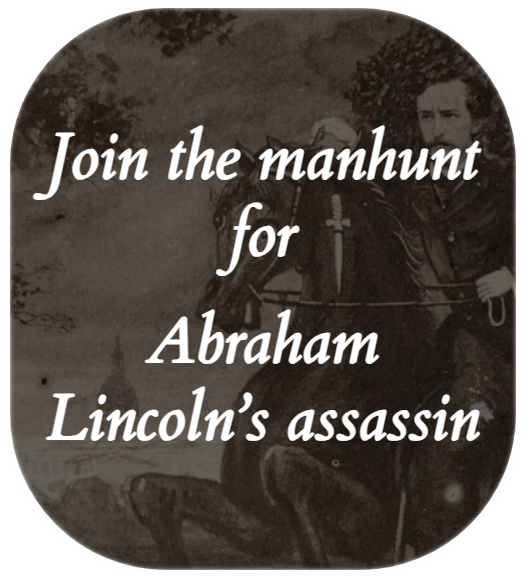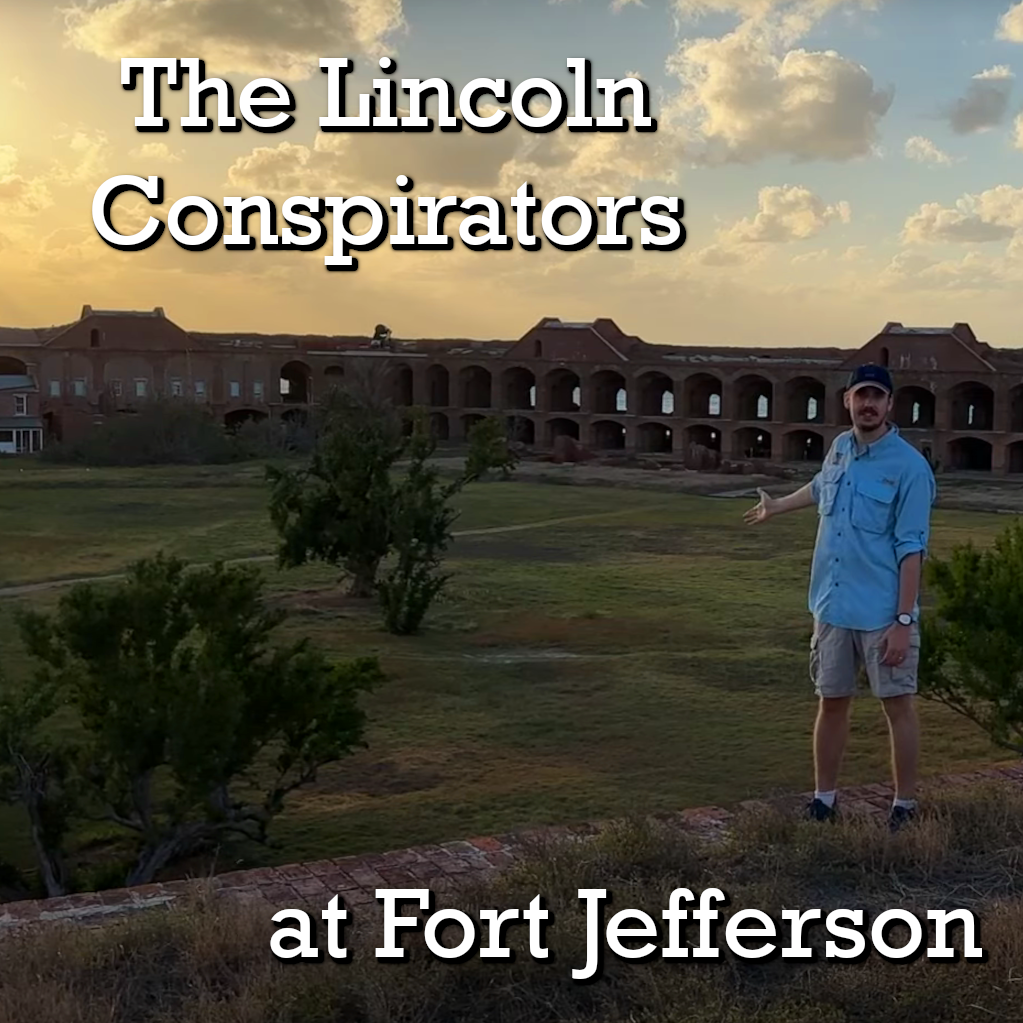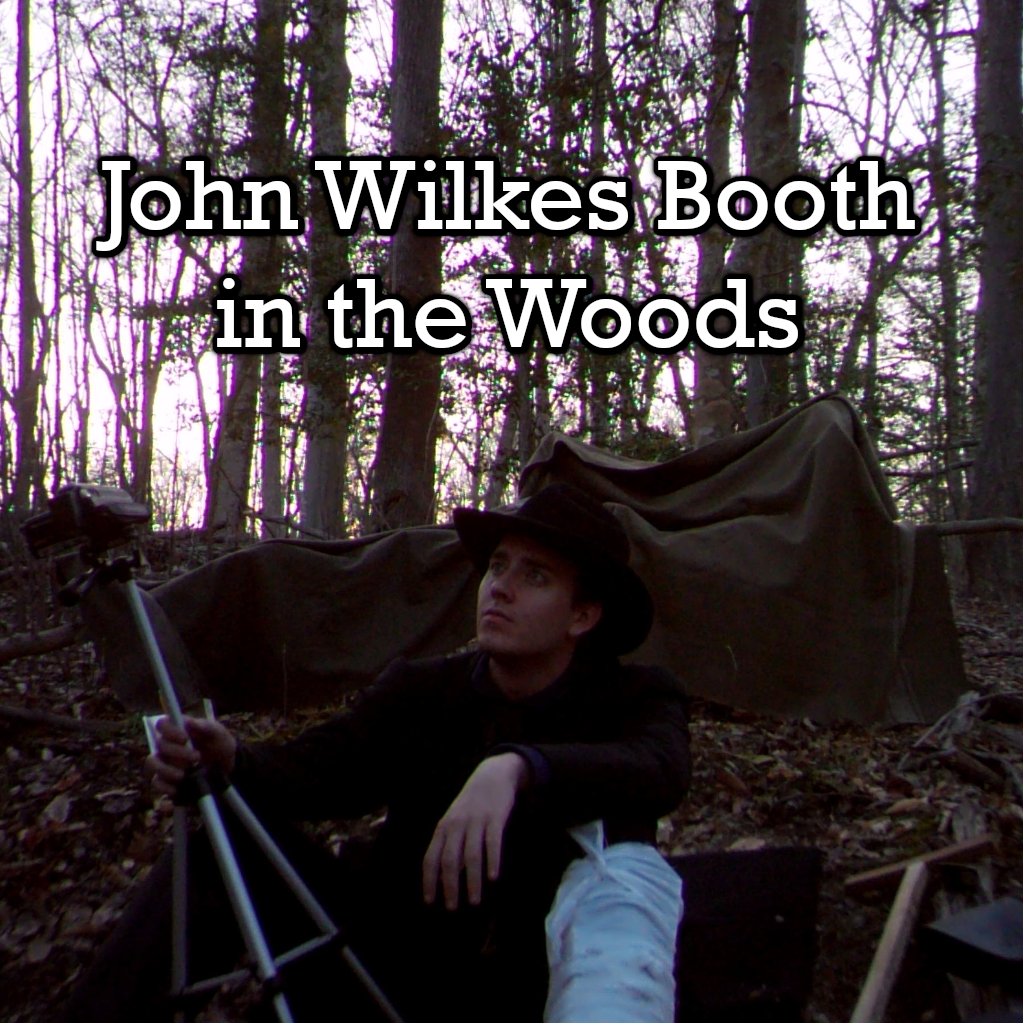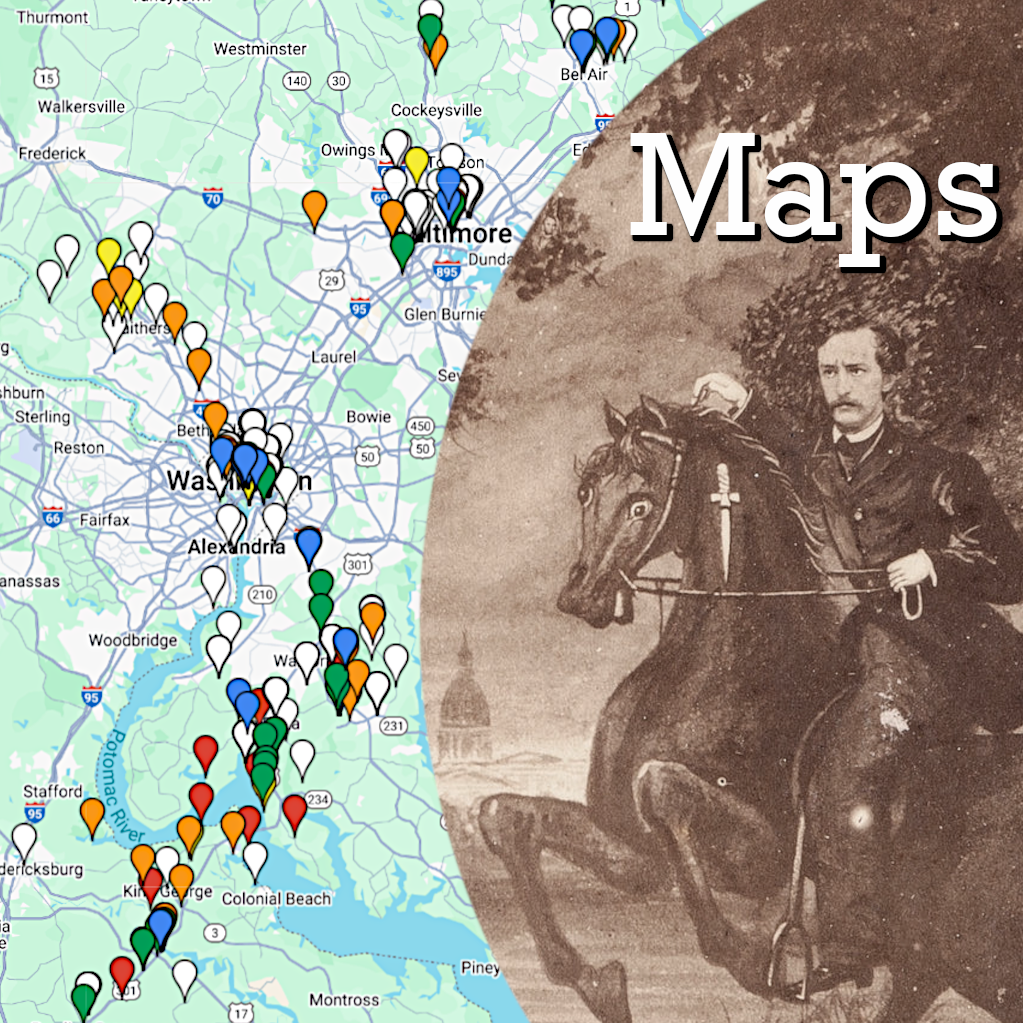Each week we are highlighting the final resting place of someone related to the Lincoln assassination story. It may be the grave of someone whose name looms large in assassination literature, like a conspirator, or the grave of one of the many minor characters who crossed paths with history. Welcome to Grave Thursday.
Virginia Clarke
Burial Location: Greenlawn Cemetery, Bowling Green, Virginia
Connection to the Lincoln assassination:
One of the most forgotten and overlooked parts of the escape of the assassins of Abraham Lincoln involves the home of Mrs. Virginia Clarke. This is probably due to the fact that Mrs. Clarke’s home is technically not a part of John Wilkes Booth’s escape route. The lead assassin never got as far south as Mrs. Clarke’s home and, therefore, never saw the home pictured above. However, Booth’s accomplice and fellow fugitive, David Herold, not only saw this house but spent the night at Mrs. Clarke’s during the brief period of time where he separated from the assassin. On the afternoon of April 24, 1865, John Wilkes Booth and David Herold were waiting at the ferry crossing of Port Conway, Virginia, waiting to cross over to Port Royal on the other side of the Rappahannock River. As they waited, three Confederate soldiers rode up to the ferry landing. After some parlay, the fugitives announced their identities to the men. The soldiers, Willie Jett, Absalom Bainbridge and Mortimer Ruggles vowed to give Booth and Herold assistance on their escape. After crossing the ferry Jett attempted to find Booth refuge at the home of Sarah Jane Peyton, but she rebuffed him after seeing the condition Booth was in. The group of five then rode about two miles south of Port Royal where Jett dropped Booth off with the Garrett family. It was at this time that Herold separated from John Wilkes Booth for the first time since the pair had met up at Soper’s Hill outside of Washington on April 14th. While Booth enjoyed the hospitality of the unsuspecting Garrett family on the night of April 24th, Herold made his way with Absalom Bainbridge to Mrs. Clarke’s home.
David Herold briefly mentions this visit to Mrs. Clarke’s in his interrogation:
“One of the soldiers named Bennington [Bainbridge], was going to see a gentleman named Clark[e] whom I met some three or four years ago, & of whom I had heard people in Maryland speak. I do not know Clark’s christian name. Both Bennington & Clark had belonged to Mosby’s command. We went there and Bennington introduced me…We staid there all night.”
James Clarke, Herold and Bainbridge’s mutual acquaintance, was not at home when the pair arrived. Therefore Bainbridge had to introduce Herold to James’ mother, Virginia Clarke. Bainbridge introduced Herold to Mrs. Clarke using the pseudonym of Mr. Boyd, the same name Jett had used to pass Booth off on the Garrett family.
Practically nothing is known about Herold’s stay with Mrs. Clarke and the next morning he was riding back with Bainbridge to Bowling Green to meet back up with Ruggles and Jett who had spent the night at the Star Hotel. Ruggles, Bainbridge, and Herold rode back up to the Garrett farm where Herold joined back up with Booth. The rest is history.
Mrs. Clarke’s home no longer stands. The area where it was once located has been transformed into a man-made lake.
When Virginia Clarke died in 1877, she was originally buried in a family cemetery belonging to her son-in-law’s family. However, when Fort A. P . Hill was created in Caroline County in the 1940’s, that family cemetery, along with many others, had to be removed. Greenlawn Cemetery in Bowling Green was created specifically to receive the transplanted graves of those originally interred on land now owned by Fort A. P. Hill.
Check out the Maps page for more details. For more information about the actions of Willie Jett, Absalom Bainbridge and Mortimer Ruggles click this link.
GPS coordinates for Virginia Clarke’s grave: 38.070225, -77.338979










What ever happened to the three confederate soldiers who aided Booth? Were they ever brought to trial for aiding and abetting a presidential assassin?
William Storke Jett had been a wounded veteran and was a commissary agent at the time. He was a prime witness at the Conspirator’s trial in which he was questioned and cross examined. He had a traumatic life after the trial and lived in New York and Baltimore. He had behaved badly in a public incident in New York once and had a failed relationship in matrimony.
Eventually he was judged to be ‘insane’ (rather like Corbett and Rathbone but not like Powell who was judged to be sane). Jett spent his last two years in the Eastern Lunatic Asylum, Williamsburg, Va and died there on July 17th 1884. A year later the asylum was burnt to the ground due an electrical wiring fault.
Jett was likely kept in the Capitol prison until the trial along with Ruggles who had also spent a few days on Johnson Island POW camp. Both or all three had been arrested at their homes in Prince William and/or Cumberland and King George counties.
Andrew Johnson released all the remaining conspirators – and the POW’s of war under the general amnesty just before leaving office. They were likely or should have been released after the trial however.
After the siege at Garrett’s barn (where the straw was set alight by the lead NDP man, Everton Conger) and Thomas Corbett (‘Boston’) had shot the fugitive, Jett then escaped from the NDP agent Luther Byron Baker after he had taken off with Jett against Lt. Doherty’s orders, to push on to Washington. There had been ‘bad blood’ between Doherty’s men and the NDP.
The fugitive who at first gave his name as ‘Boyd’ to Ruggles had told them they were brothers fighting for A.P. Hill’s Corps at Petersburg. Jett said ‘we were all dressed in Confederate uniform’.
Jett was castigated, unfairly I believe, having divulged the whereabouts of the two fugitives at Garrett’s barn when the 16th New York arrived just after midnight on Wed 26th at Gouldman’s Hotel. Rollins the ferryman had been arrested and had given Doherty the location of Jett at Bowling Green. Jett had gone there to see Izora Gouldman – a girlfriend. One of Doherty’s men nearly shot Izora’s young brother – a wounded soldier ‘thinking he was Booth’ allegedly.
Bainbridge and ‘Herold’ – who had given his name as Boyd to the party – had stayed at Mrs. Virginia Clark’s home before returning to Garrett’s farm on Tuesday 25th April.
Ruggles’ own story years later is highly dubious considering its exaggerated style in mimicking, or fitting in with the character of Booth having the knife with ‘Rathbone’s blood still on the blade’ and a ‘beard growth of ten days ‘ – an account for public consumption that fits in most conveniently with the official line. Ruggles and Bainbridge and Jett had allegedly fought with 43rd Mosby’s Rangers.
Here is a part of the account by Ruggles to Prentiss Ingraham a famous ‘dime novelist’ for a magazine years later in 1889:
“At the close of the civil war, Colonel Mosby, to whose command I belonged, surrendered to General Hancock, at Millwood, Virginia. In company with two comrades, A. R. Bainbridge, now in business in New York, and William Jett, now dead, I started for my home in King George County, Virginia.
We had heard from United States officers of the assassination of Mr. Lincoln, and that the assassin had been captured in Washington, and little dreamed, when we rode up to the bank of the Rappahannock River, that the assassin had been captured in Washington, and little dreamed, when we rode up to the bank of the Rappahannock River, that we were there to come face to face with John Wilkes Booth.
Port Conway is on the King George side of the river, there about three hundred yards wide, and opposite Port Royal. The ferry was owned by a man named Rollins, but the scow was run- that is, poled across – by Peyton Washington. The scow was on the other side of the river when we rode up, and I observed there a wagon, drawn by two very wretched-looking horses. In the wagon were two men.
On seeing us approach, one of them came towards us, and, finding that we were Confederate soldiers, said that his name was Boyd, and that his brother had been wounded severely in the leg while escaping from prison, where they had been for some time. He furthermore said that their driver, Lucas, refused to take them any farther, and that they were anxious to get on their way, and asked our aid. I at once said we would help them; and while discussing the speedy coming of the scow, the other got out of the wagon, and walking with evident pain, with the aid of a rude crutch, came towards us. He apparently mistrusted his companion, for as he came forward he said, ‘I suppose you have been told who I am?’
Thinking he meant that Herold had told us they were Confederate soldiers, escaped from prison, I answered in the affirmative. Instantly he dropped his weight back upon his crutch, and drawing a revolver said sternly, with the utmost coolness: ‘Yes, I am John Wilkes Booth, the slayer of Abraham Lincoln, and I am worth just $175,000 to the man who captures me.’ We were greatly surprised, and yet the coolness of the man won our admiration; for we saw there was bounty on his head and that he was wounded, desperate, and at bay. His face was haggard, pinched with suffering, his dark eyes sunken, but strangely bright, and though he had shaved off his moustache, upon his lip and face was a beard of some ten days’ growth.”
Note:
Cavalryman Millington of the 16th NY had said the NDP gave out the name of James Boyd the fugitive when they stopped and enquired at houses on the road to Port Conway, Md. from Belle Plain after landing from the John S. Hyde at Aquia Creek on Tuesday 25th April 1865 straight from Washington on Monday.
The Effusive Ruggles
Ruggles’ account continues:
“In response to his defiant words I said that we had been told that Lincoln’s slayer had been captured; though we did not sanction his act as an assassin, we were not men to take ‘blood money’; and having promised his friend, who proved to be Herold, to take them across the river to a place of safety, we would do so. Booth replaced his weapon at my words, and, thanking us, said he was utterly unable to.
I dismounted, and we lifted him upon my horse, a fact that seemed to give the saddle and bridle a great pecuniary value, as I learned through correspondence with Mr. Barnum; though they were never exhibited as relics, and are now at my brother’s home in Virginia kept as souvenirs of my days with Mosby. Booth and Herold both seemed to be the worse for their exposure and hardships of the past few days.
Booth wore a black soft hat, dark clothes, one cavalry boot, the one on his wounded leg having been cut off ; his weapons were a carbine, two revolvers, and a knife, the blade of the latter bearing the stain of blood, for with it he had wounded Major Rathbone.
I noticed his wounded leg was greatly swollen, inflamed, and dark, as from bruised blood, while it seemed to have been wretchedly dressed, the splints being simply pasteboard rudely tied about it. That he suffered intense pain all the time there was no doubt, though he tried to conceal his agony, both physical and mental.
When the scow arrived Peyton Washington ferried us across the river. After a ride of three miles we came to Garrett farm and asked for shelter for the fugitives, which was granted. We stayed all night near Garrett’s, sleeping in the woods; the next day Herold went with us to Bowling Green, where we left Jett.
The next day, Herold having decided upon the best course to pursue in his flight, Bainbridge and myself accompanied him back to Garrett’s. We found Booth lying on the grass, in front of the house and sitting by his side I heard from his lips his version of the tragic conspiracy, his fatal shot, his motives, escape, and flight up to his coming to the Garrett’s.
In answer to my questions he spoke quietly, repressing now and then a groan of pain, and showing emotion and stern defiance at times. He said, in substance, that the plot had been to capture Mr. Lincoln and carry him a prisoner into the Confederacy, for he said that by such an act the war could be brought to an end, as the South could dictate terms with such a hostage. Failing in this, he decided at the last moment to strike deadly blows at Mr. Lincoln, Mr. Seward, and General Grant.
In the plot to kill, Payne alone was implicated with him, not even Herold knowing what was to be done. Atzerodt knew nothing of the intended assassination, nor did, according to Booth’s statement to me, any other, except Payne. Mrs. Surratt was not mentioned by him.
He said that Payne was to strike a death blow at Secretary Seward, and he, favored by the fact that President Lincoln and General Grant were to attend the theater together, was to kill both of them. General Grant’s having been called away alone saved his life, for, said Booth, ‘I would have made no failure with either, as I had laid my plans for success only.
That Andrew Johnson might be implicated in the plot of assassination; Booth said that he had left that morning a note at the hotel where the Vice-President lived, to compromise him.
He had no idea, he said, from the information received about Washington that the war had really ended; for had he not believed it would have been kept up by the South, he wouldn’t have struck the blow as he did.
After getting safely out of Washington his intention was to cross the line, as quickly as possible, into the Confederacy. Joining Herold at a rendezvous they had ridden hard through the night to gain a place of safety; but having a broken leg, and learning after several days, through the papers, that the war was really at an end, he determined get to the silver mines of Mexico, feeling that the South would be no place of refuge for him.
It has been said that Booth had plenty of money with him; but he showed me three five-dollar bills, all that he had, excepting a bill of exchange; while Herold had not as much.
It is generally believed that Herold shot his own and Booth’s horse; but Booth told me that after weighting them down they led them into the Potomac the night, embarked in the boat to cross, and drawing their heads over the gunwale cut their throats and saw them sink from sight. This would account for the fact that their bodies were never found.
Booth seemed to feel that he had been spurred on to the deed through a duty he owed the country to bring the war to an end, and he said that he would never be taken alive.”
The Testimony of William Jett
May 17th 1865: The original document is located at the National Archives and Records administration in Washington, DC.
This is Jett’s account at the Conspirator’s Trial. Questioned by the Judge Advocate he recognised Herold at the bar. When asked when he first knew him Jett proceeded to give a detailed account:
“On the date I met Herold; I had been travelling from Fauquier County to Caroline County; having been stationed there.” It was to visit friends. At Port Conway near the wharf they saw a wagon there. It was Monday 18th April but the judge corrected him and he said he meant the week after… meaning Monday the 24th April. He was with Lt. Ruggles and Bainbridge.
As they rode up to the wagon they saw a young man get out of it. They passed on to the wharf to hail a ferry. The stranger approached and asked of which command they were. Ruggles said we belong to Mosby’s command.
He asked where they were headed and if he could join us. He was with A. P. Corps and his companion had been wounded at Petersburg. He said they were brothers … giving the surname of Boyd.
“Herold asked if we would take him out of the lines. We didn’t give our destination. Then he asked us to take a drink with him. We declined. He thought we might be travelling south and wanted to go with us. He seemed agitated then said ‘we are the assassinators of the President’. I called to Ruggles and told him this; then Booth came over to us; he had the initials JWB on his hand.
We then went on to Mr. Garrett’s and there we left Booth.
Herold and the rest of us went to within a few miles of Bowling Green along the road. Bainbridge and Herold went to Mrs. Clark’s and Ruggles and myself to Bowling Green. The next day – on Wednesday, Herold returned to Garrett’s or near that way, and that is the last I saw of him.”
Council asked: “Herold introduced Booth to you as his brother Boyd, did he? Yes sir.
Q. Did he afterwards change his name?
A. He afterwards told us his name was Herold, and Booth’s name was Booth. They kept the same name, Boyd, though.
Q. Do I understand you to say that these men, Herold and Booth, went to Garrett’s?
A. No, sir, Herold did not go in, he stayed at the gate with Bainbridge. Ruggles and Booth and I rode up together.
Q. Do you know where Herold went from Bowling Green?
A. I don’t know. The next day, he left at two or three o’clock. That was the last I saw of him, except the night they were caught when I went down there and I saw him the next morning.
Q. When you saw him next morning he was in custody of the officers, was he not? A. He was.
Q. Did you or not before this declaration say that they were the assassinators of the President, make known you were in the Confederate service?
A. they knew because we were all dressed in Confederate uniform. I had been with Mosby’s command.”
Mr. Aiken for the defence council asked: ‘Have you taken the oath of allegiance’. Jett replied ‘No sir but he was perfectly willing to do so.’
Correction : Port Conway, Va
These are fascinating. Always amazes me how extensive the number of players are in this drama. Always disappointing to find out the landmarks are gone, but appreciate the scholarly details you include!
…again, I learn something more from your blog. Thanks for the good photographic detective work!
To the Editor: I have written an article in response to Jim Stoffaire describing what happened to the Confederate trio. It immediately could not be sent. I shortened it to one paragraph but it still did not go. Can it be sent?
Lt. Ruggles had also intimated that the fugitives had escaped from prison. Thus: ‘On seeing us approach, one of them came towards us, and, finding that we were Confederate soldiers, said that his name was Boyd, and that his brother had been wounded severely in the leg while escaping from prison, where they had been for some time.’
Ruggles was the son of the giant and grey bearded General Daniel Ruggles who had a certain Major Alison, of the famed Alison’s Rangers, arrested for shooting a US marshal when obstructing a raiding campaign.
General Ruggles was in charge of the release of southern war prisoners. He was born in Massachusetts and graduated from West Point achieving the rank of Brevet Colonel. At the outbreak of Civil War he switched sides and was elevated to Brigadier General.